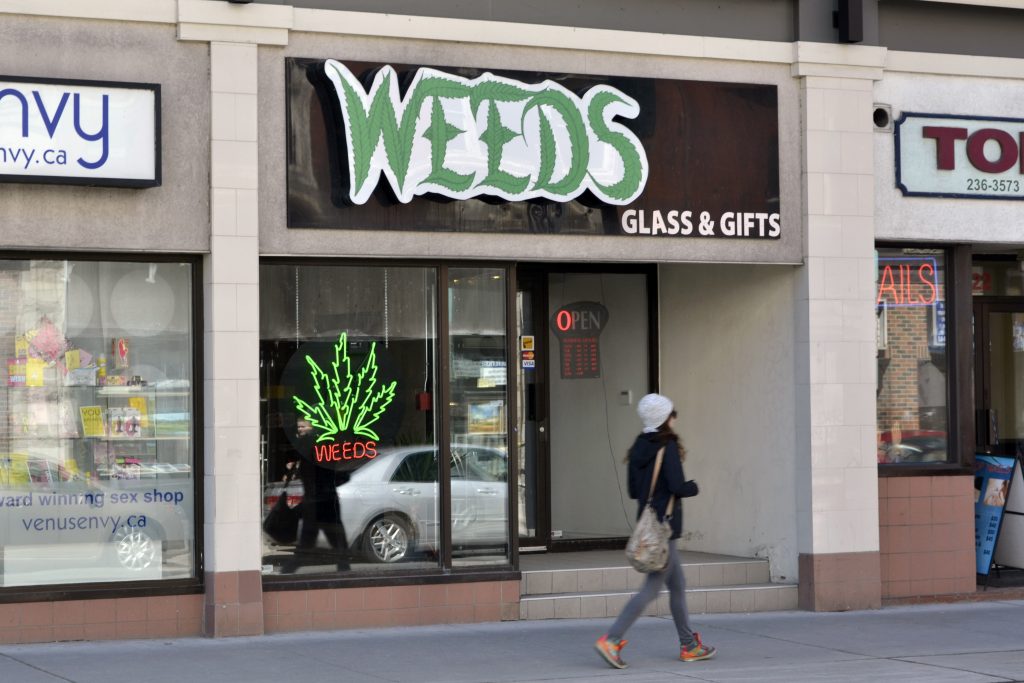Viewpoint: Confusion reigns with raids, reopenings of marijuana shops
By Veronica Newbury
Over the last few weeks, there’s been a curious chain of raids carried out against Canadian marijuana dispensaries by law enforcement.
Cannabis Culture, brainchild of Canada’s own so-called “prince and princess of pot” — Mark and Jodie Emery — was a recent casualty of the marijuana busts, with several of the franchise’s locations across the country finding themselves suddenly closed for business.
The Centretown branch on Bank Street, which had just opened in February, was targeted in one police raid on March 9 — the twelfth the city has seen since November — resulting in five arrests.
Then, on March 21, two Magna Terra Health Services locations were also raided and shut down. The Carling outlet had been open since 2015.
Other raids were conducted by police across Vancouver and Toronto. The police actions in the Ontario capital took place under the city’s “Project Gator” operation, specifically targeting illegal pot shops.
Members of the public may be watching all of this — the intermittent pot-shop shutdowns and reopenings, the ongoing sales of medical marijuana and the impending legalization of cannabis generally — and getting pretty confused.
The Emerys were arrested and face charges related to possession and trafficking, and have since been granted bail.
Following the latest Project Gator raids, Toronto Police spokesperson Mark Pugash tried to clarify things: “The dispensary advocates want you to believe… there’s a grey area. There isn’t. The fact is, however you try to shine this, it is against the law.”
As the law stands now, only establishments licensed by Health Canada and servicing users strictly for medical purposes are permitted to distribute cannabis.
Yet hundreds of unlicensed dispensaries have been popping up across the country. The Emerys have opted to take it one step further by making the drug available to anyone over the age of 19.
The raids are a peculiar action when juxtaposed with the government’s announcement that legislation to fully legalize is expected to land in June 2018.
But the police continue to whistle the same tune they always have — drug trafficking laws are still in place for now and as such, any dispensaries selling cannabis for non-medical use are operating quite illegally.
The message seems clear enough. Except, it isn’t.
To say that the history of marijuana dispensaries in Ottawa is confusing would be an understatement if ever there was one.
For one, the shop closures don’t seem to originate from any discernable pattern. Back in November, the WeeMedical Dispensary on St. Laurent Boulevard, along with its sister Green Tree stores on Preston Street and Montreal Road were raided and shut down, only to reopen days later, only to close their doors again recently.
It’s still unclear whether the closures are permanent or not.
Watching all of this unfold is enough to induce a whiplash, and leaves me — and likely a large portion of Ottawa residents — wondering how supposedly illegal dispensaries can operate for weeks or months with no police action, then get shut down, then go back into business again for weeks or months.
More importantly, with more than a year separating us from supposed marijuana legalization, is this tug of war between dispensary owners and law enforcement going to continue pending formal enactment of the new law?
To the casual passerby, seeing a vacant storefront with a closed sign hanging from the door where a bustling business was fully functional the day before sends a hazy message. It also creates an unnecessarily “hushed” precedent around a business sector that will, presumably, be the norm in a year’s time.
Currently, Vancouver is the only city in Canada with a set of bylaws regulating medical marijuana dispensaries in anticipation of federal laws. The city enforces licensing rules that dictate how and where they operate.
Litigators Gerald Chan and Benjamin Kates of Stockwoods LLP. argued in the Toronto Star last August that Ontario’s unregulated system allows for a gap “between law and reality” to form.
“It undermines respect for the rule of law and opens the door to selective enforcement,” they wrote. They also pushed for all levels of government to immediately begin drafting a more coherent structure.
Their prediction and their analysis seem sound. It’s a pretty good argument from a legal, political and even business perspective. A confusing legal framework means a confused police force and a confused public.
And this isn’t good on any level.
The current legislative vacuum and the inconsistent police response toward these dispensaries should be addressed in the interim. No one should have to interpret or guess what’s going on.

